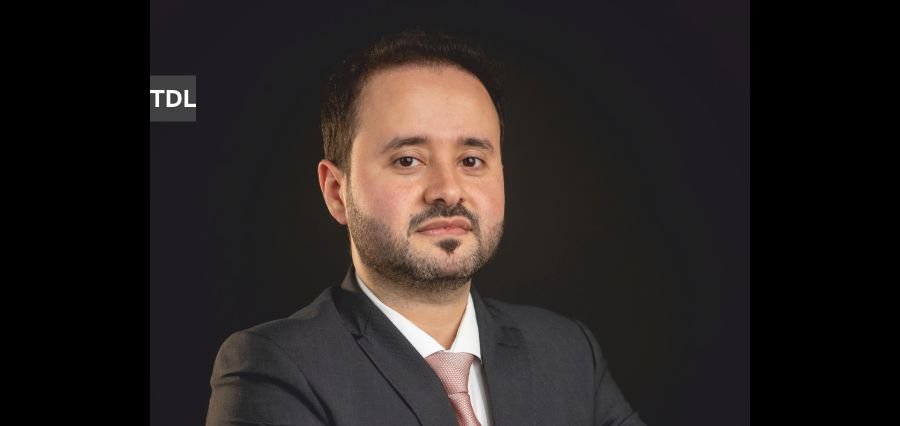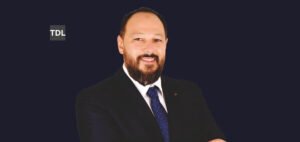The healthcare supply chain field is in the intersection where traditional procurement practices meet innovative digital technologies. While the global disruptions are ongoing to put traditional practices into test, the practice requires individuals capable of dealing with tangled web-like regulatory environments and having an unflinching commitment towards patient safety. The Arab world in particular requires supply chain professionals capable of understanding the technical realities of modern medicine and the human dynamics that come before successful organizational change.
Health care procurement is different from other industries due to its life-affecting nature and the stringent regulatory systems. Decisions have implications beyond financial considerations, exerting a direct impact on patient outcomes and safety measures. The sector demands managers to balance cost-effectiveness and quality, negotiate diverse stakeholder demands, and incorporate sustainable methods without compromising the delivery of care.
Healthcare supply chain leadership now consists of a mix of technical and relationship competencies. The leaders must be adept in data analysis, AI use cases, and digital transformation initiatives and forge collaborative relationships with clinical teams, suppliers, and regulators. They must develop risk management and supplier diversification and be flexible enough to respond to any surprise disruptions.
The shift to value-based purchasing is a deep rethinking of healthcare supply chain mentality. The system goes beyond simple cost saving to take into account end-to-end value being generated by procurement decisions, all the way out to their impact on patient trajectories, length of stay, and quality of care. This kind of change requires bold leaders able to spearhead the effort and guide teams through the middle of gut-wrenching change.
Spearheading Healthcare Supply Chain Innovation
Talal Ali Mohamed serves as Chief Supply Chain Officer at Al Zahra Private Hospital Dubai. Here, he champions a patient-centered approach to healthcare procurement and supply chain management. His leadership philosophy centers on building resilient and efficient supply chains through collaboration, adaptability, and value creation while maintaining a culture of trust and sustainability.
Mohamed’s approach to supply chain leadership rests on six fundamental pillars that guide his decision-making process. He prioritizes a patient-centered approach, ensuring that every supply chain decision ultimately serves patient safety and outcomes. This philosophy prevents cost savings or efficiency improvements from compromising the quality of care that patients receive.
His emphasis on fostering resilience through proactivity recognizes that disruptions remain inevitable in healthcare supply chains. Mohamed focuses heavily on risk mapping, scenario planning, and supplier diversification strategies that enable the supply chain to absorb shocks without interrupting critical services and essential functions.
Innovation plays a central role in Mohamed’s strategy as he leverages digital transformation tools, including artificial intelligence, predictive analytics, and blockchain technology. These tools help optimize inventory management, reduce waste, and create real-time visibility across the supply chain network. His commitment to promoting efficiency through innovation positions Al Zahra Hospital at the forefront of healthcare supply chain modernization.
Collaboration and transparency form the cornerstone of Mohamed’s leadership style. He fosters open communication and shared accountability among all stakeholders, ensuring that decisions align with hospital strategy and benefit from collective input. This collaborative approach extends to supplier relationships, where he treats partners as integral components of the healthcare delivery system.
Team empowerment represents another critical aspect of Mohamed’s leadership philosophy. He invests significantly in team development, working to address weaknesses while building decision-making skills and delegating appropriate authority. His belief that failing to invest in team empowerment leads to followers rather than leaders drives his commitment to professional development.
Sustainability and long-term thinking guide Mohamed’s procurement decisions beyond immediate cost and availability considerations. He embeds sustainability and ethical procurement practices into decision-making processes, ensuring that supply chains contribute to environmental and social responsibility goals.
Formative Experiences Shaping Leadership Approach
Three key experiences have fundamentally shaped Mohamed’s approach to procurement and supply chain leadership. His frontline exposure to healthcare operations early in his career provided direct insight into how supply delays affect patient care. This experience gave him a patient-first mentality, understanding that procurement involves life-safety obligations in addition to contracts and cost savings.
The COVID-19 pandemic served as a transformative learning experience for Mohamed and the broader healthcare supply chain community. The pandemic challenged existing perspectives and approaches, particularly regarding inventory management strategies. Many fundamental concepts evolved during this period, raising awareness about supply chain importance and teaching valuable lessons about resilience, supplier diversification, and proactive risk management.
Leading digital transformation projects has reshaped Mohamed’s understanding of technology’s role in modern supply chain management. His involvement in implementing AI-driven forecasting systems, e-procurement platforms, and real-time inventory analytics has demonstrated how technology can revolutionize traditional procurement approaches and create new possibilities for efficiency and effectiveness.
Balancing Technical Excellence with Human Leadership
Mohamed views procurement leadership as requiring a careful balance between technical excellence and human connection. His technical approach relies heavily on data analytics, AI-driven forecasting, contract management systems, and performance dashboards to ensure accuracy, efficiency, and compliance across all operations.
His strong academic background shapes his decision-making approach and reinforces his belief that organizations currently operate in an era of data management and processing. Mohamed responds positively to data-driven arguments and evidence-based presentations, reflecting his commitment to objective analysis and measurable outcomes.
On the human side, Mohamed recognizes that supply chains succeed or fail based on relationship quality. He focuses extensively on listening to relevant stakeholders, from clinicians to caregivers and technical personnel, while engaging suppliers as true partners rather than mere vendors. His investment in team empowerment and leadership development aims to optimize outcomes and enhance performance across his organization.
Navigating Healthcare-Specific Challenges
Leading procurement in healthcare presents unique challenges that distinguish it from other industries. Patient safety serves as the ultimate priority, meaning every procurement decision can directly impact human lives. This reality prevents Mohamed from viewing cost and efficiency considerations in isolation from quality and safety requirements.
Healthcare procurement operates under strict regulatory oversight and must comply with accreditation standards, including DHA, JCIA, MAGNET, and CAP requirements. These compliance obligations make flexibility and decision-making more complex compared to other sectors, requiring careful navigation of regulatory landscapes.
The unpredictable and urgent nature of healthcare demand creates additional complexity. Sudden outbreaks or emergencies can dramatically affect market supply and create serious operational problems. Accordingly, Mohamed prepares for volatile demand patterns while maintaining consistent supply availability.
Healthcare procurement involves diverse stakeholders with varying priorities and requirements. Mohamed balances the needs of clinicians, finance teams, suppliers, regulators, and patients while making decisions that satisfy multiple competing interests and requirements.
Technology adoption in healthcare tends to lag behind other industries due to cost pressures, legacy systems, and risk aversion. While many sectors have embraced AI, blockchain, and advanced analytics, healthcare adoption remains slower, making digital transformation an ongoing challenge that requires persistent effort and strategic planning.
Ensuring Supply Continuity During Global Disruptions
Mohamed employs a multi-layered resilience strategy to ensure uninterrupted access to critical medical supplies during global disruptions. His approach begins with supplier diversification based on the principle of not placing all resources with single suppliers, provided that diversified suppliers meet established safety and procurement standards.
Strategic stockpiles and safety buffers for life-saving items, including PPE, critical drugs, and surgical kits, require collaboration with clinical teams to define minimum reorder levels. These decisions require approval from finance departments while maintaining appropriate inventory levels for emergencies.
Real-time visibility through digital dashboards and AI-driven demand forecasting enables Mohamed to track inventory across systems, identify risks early, and make proactive adjustments before shortages occur. This technological approach provides the data needed for informed decision-making during crises.
Collaborative partnerships with suppliers, regulators, and peer hospitals create shared contingency plans and enable resource pooling during crises. These relationships prove essential when normal supply channels face disruption and alternative solutions become necessary.
Scenario planning and stress testing involve conducting multiple dry runs to assess team performance and stakeholder responses during shortage situations or disease outbreaks. These exercises help identify weaknesses and improve response capabilities before actual emergencies occur.
Empowering teams in decision-making involves reducing bureaucratic barriers so procurement can shift suppliers, fast-track approvals, or implement alternative logistics without delay. This streamlined approach eliminates the need for multiple approval levels during time-sensitive situations.
Innovation in Daily Procurement Strategy
Innovation plays a central and pivotal role in Mohamed’s daily procurement strategy at Al Zahra Hospital. This focus allows him to move beyond traditional cost-focused purchasing toward value creation, resilience, and patient-centered outcomes that benefit the entire healthcare delivery system.
Al Zahra Hospital currently advocates for value-based procurement concepts that recognize the diminishing relevance of traditional cost-saving approaches. The organization now considers the comprehensive value created through each procurement decision while accounting for hidden costs embedded in procurement choices, including impacts on patient journeys, average length of stay, patient comfort, insurance, and reimbursements.
This value-based approach relies heavily on digital tools, analytics, and real-life data. These support the hospital’s vision and provide non-clinical stakeholders like finance departments with evidence-based information reflecting operational realities. The data-driven approach helps justify procurement decisions beyond simple cost comparisons.
Mohamed remains open to new trends and innovations in supply chain management, working to identify opportunities for integrating blockchain technology and advanced AI models into existing operational processes. This forward-thinking approach positions Al Zahra Hospital to benefit from emerging technologies as they mature and become commercially viable.
Sustainability in Healthcare Procurement
Sustainability plays both strategic and ethical roles in Mohamed’s procurement approach, particularly important in healthcare where supply chains create direct environmental and social footprints. The organization operates under the philosophy that those who do not care about the future do not deserve the present.
As a supply chain leader, Mohamed constantly promotes green procurement policies while highlighting the importance of partnering with suppliers who adopt eco-friendly materials and practices. His procurement scorecards assign high coefficients to suppliers who demonstrate sustainability commitments and take immediate measures to reduce carbon footprints and waste generation.
Al Zahra Hospital has developed key performance indicators that assess and monitor sustainability initiatives across procurement operations. These metrics provide measurable data on environmental impact and progress toward sustainability goals, enabling continuous improvement in environmental performance.
Ethical Sourcing and Financial Balance
Mohamed ensures ethical sourcing while balancing financial efficiency by aligning organizational values with strategic business practices. His approach makes compliance non-negotiable while partnering with suppliers to drive continuous improvement in ethical standards and operational performance.
His methodology involves leveraging innovation to balance responsibility with efficiency, ensuring that procurement decisions protect both the hospital’s reputation and financial health. This balanced approach demonstrates that ethical considerations and financial performance can complement rather than conflict with each other.
Vision for Regional Impact and Future Trends
Mohamed hopes to be remembered for promoting value-based procurement concepts and integrating AI tools into daily supply chain activities. He acknowledges challenges, including a lack of awareness and traditional mentalities that view procurement as cost-cutting rather than value optimization. He aspires to raise healthcare supply chain standards and develop industry best practices while cultivating future regional leaders.
Key trends are reshaping Arab healthcare procurement by 2030. Digitalization is accelerating, with the UAE’s market growing from USD 31.1 million to USD 53.3 million.
Precision medicine logistics in the Middle East and Africa are also expanding, rising from USD 452.1 million to USD 750.7 million. Blockchain and IoT are enhancing supply chain transparency. Sustainability practices are becoming increasingly prominent. Local manufacturing is reducing import dependency. At the same time, cybersecurity is being strengthened through zero-trust architectures.
Shaping the Future of Healthcare Supply Chain Leadership
Mohamed represents a new generation of healthcare supply chain leaders who combine technical expertise with human-centered leadership approaches. His work at Al Zahra Private Hospital Dubai demonstrates how innovative thinking, collaborative relationships, and patient-focused strategies can transform traditional procurement practices into value-creating functions that benefit entire healthcare ecosystems. As the Arab region continues evolving its healthcare infrastructure and capabilities, leaders like Mohamed play crucial roles in establishing best practices and driving industry-wide improvements that ultimately enhance patient care and organizational sustainability.




